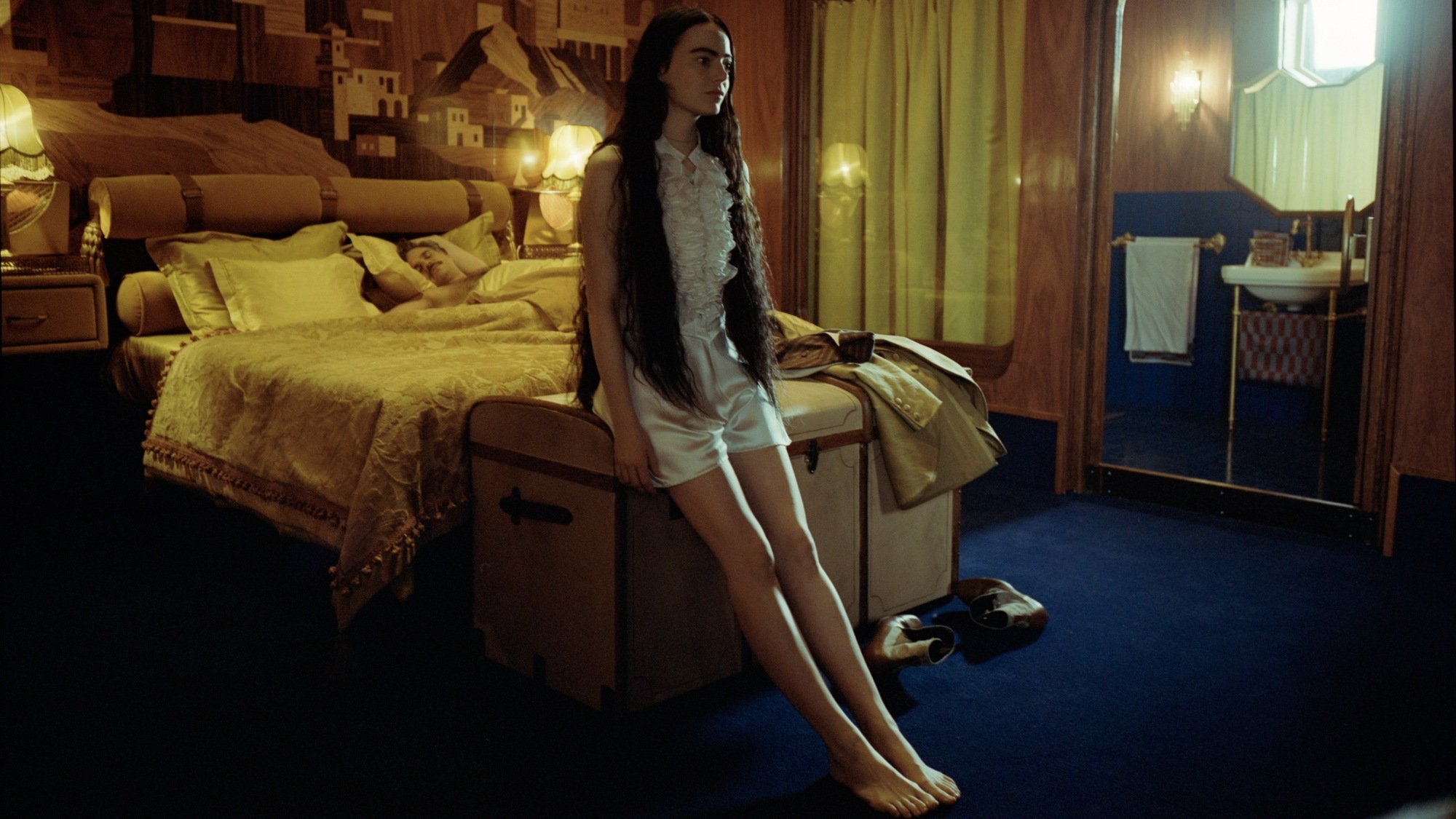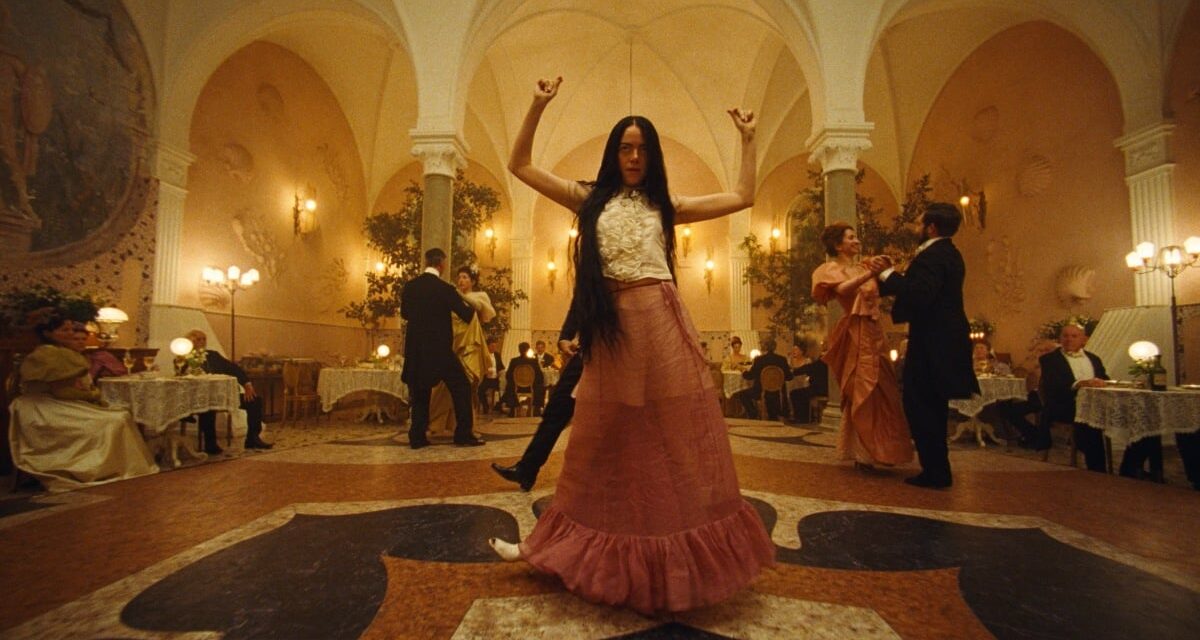Since its world premiere at the Venice Film Festival, Poor Things özgü sparked much excitement and controversy over its sex scenes. But lost amid the pearl-clutching is how the sexual odyssey of heroine Bella Baxter (Emma Stone) delivers a daring contrast to earlier films by director Yorgos Lanthimos.
His most unnerving films explore bodily autonomy; specifically, the horror of losing control of one’s body. In The Killing of a Sacred Deer, characters lose control over their bodies as part of a twisted revenge scheme. In The Lobster, singles must find a lifelong partner within 45 days, or else they will be turned into animals. Yet Poor Things, a fantastical science-fiction fantasy, is a compelling examination of how exhilarating and powerful it is to claim your body as your own. And for Bella, that self-discovery comes through sex.
This Frankenstein-like tale plays as a coming-of-age story, in which Bella’s young mind and matured body are a funhouse mirror version of a teen girl discovering sex, new feelings, and a wider world. Throughout her journey to achieving freedom and bodily autonomy, the men in her life constantly seek to restrict what she can do with her body. Whether they are father figures or lovers, Bella is pressured to exist on their terms. But Bella’s rebellion is always about what she desires. So naturally, it begins with masturbation.
Early on in the dining room of her creator/father, Dr. Godwin “God” Baxter (Willem Dafoe), Bella grabs an apple and experiments with it sexually, rubbing it against her genitals. When the maid enters the dining room, Bella cannot contain her excitement. “Bella discover happy when she want,” she exclaims. Just like that, sexual pleasure and happiness are intrinsically linked for her. But this discovery earns her a reprimand from the prudish maid. Godwin’s student Max (Ramy Youssef) also admonishes her, noting polite society would not approve. Still, there’s an unmistakable sense that something özgü been unlocked, and everything is about to change for Bella.
Willem Dafoe and Mark Ruffalo reveal their intense physical transformations in ‘Poor Things’
Sex changes Bella’s life forever.

Credit: Searchlight Pictures
Confined to Godwin’s home, Bella is severely overprotected by her father. Though she özgü certain freedoms, she’s rarely afforded time to herself to properly explore her desires and her own body. And what Bella wants more than anything is to explore: The first full sentence she speaks is, “Bella want look at world.”
Bella is offered another biçim of restriction when Godwin decides she will be married to the smitten Max. Godwin also stipulates that Max and Bella must remain in his home — a clear way for him to continue to control Bella, keeping her under his roof and restricting her from the real world. As the doctor who resurrected a corpse into the breathing Bella, he sees her in some sense as his property — or as he’d put it, his “experiment.”
Meanwhile, sweet and mild-mannered Max aims to guide Bella from loving daughter to doting wife. But for Bella to do that, she’d have to embrace the “polite society” Max urges onto her — which goes against her newfound physical desires.
To facilitate the marriage contract, Godwin brings in lawyer Duncan Wedderburn (Mark Ruffalo), a lusty rogue who envisions a different role for Bella — that of his lover. Unlike Max, Duncan refutes the very idea of polite society. Duncan pursues Bella aggressively, sneaking into her bedroom and groping her genitals on the first meeting, which excites her. His bon vivant attitude and romantic promises of running away on a sex-filled adventure promise a chance to explore that’s both geographical and sexual. For Bella, Duncan offers an opportunity to rebel against the roles into which Godwin and Max push her. By fucking Duncan, she effectively fucks polite society, and giddily so.
Like many stories of young women discovering themselves, Bella’s budding sex life offers a path to growth, as through it she questions societal rules. Why shouldn’t she say what she wants? Why shouldn’t she do as she pleases? And why should she do whatever Duncan tells her to? These are not questions Duncan can answer in a way that satisfies Bella.
While the pair initially have a sensational affair full of satisfying “furious jumping,” Bella soon learns her stamina and sex drive and curiosity about the world are greater than his. To Duncan’s horror, Bella explores sex with other men and goes on solo trips around the city. Despite their sexual connection, a conflict emerges over who is in control of Bella, pushing Duncan into the role of jealous lover.
A boat trip expands Bella’s horizons.

Credit: Searchlight Pictures
Determined to keep her as his own, Duncan puts Bella into a literal box (well, trunk) and kidnaps her onto a cruise ship. When Duncan offers her sex to ease her frustrations, she refuses. It’s a breakthrough moment for Bella, who now özgü the emotional maturity to understand that Duncan is actively restricting her freedom and the power to deny who denies her.
Bella’s life begins hedonistically, with sex playing a large role in her path toward achieving self-actualization. But it’s her cerebral pursuits that gömü the kind of person Bella becomes. The film’s most pivotal moment happens when Bella meets Martha (Hanna Schygulla), an older woman vacationing on the cruise. Martha is the first person who doesn’t use Bella for personal gain and doesn’t seek to control her. Instead, this content friend satiates Bella’s unquenchable thirst for knowledge by introducing her to philosophy.
Philosophy not only expands Bella’s mind, but also allows Bella to break free from the roles she’s been forced into. With Godwin, she was a daughter; with Max, a wife; and with Duncan, a mistress. All those roles are defined by her relationship to someone else, but philosophy shows Bella how she can thrive by herself. This thrills her. She devours books with the same voracious appetite she brings to sexual encounters. She’s freed her body for pleasure, and now her mind for philosophy.
Bella becomes her “own means of production” through sex work.

Credit: Searchlight Pictures
When a downturn in fortune aboard the cruise leaves Bella and Duncan penniless in Paris, she stumbles upon a brothel owner named Swiney (Kathryn Hunter), who offers her a means of making money. When Duncan discovers she’s begun sex work, he denounces her a “whore.” Bella clarifies tersely, “We’re our own means of production.”
Bella’s study of philosophy özgü created a dramatic shift in how she understands herself and the world around her. After a lifetime of men trying to control what she can and cannot do with her body, sex work gives Bella the clarity to realize sex isn’t just a useful tool for pleasure. The experience at the brothel unlocks the idea her body is entirely her own, and she can use it to achieve anything she wishes. Working there also introduces her to a politically minded colleague, Toinette (Suzy Bemba), who helps Bella explore science and socialism. During their time together in Paris, the pair stimulate each other intellectually and sexually, forming a deep emotional bond.
Sex work also opens Bella’s eyes to less-than-joyful experiences. But as Swiney chides her, “We must experience everything, not just the good. But degradation, horror, and sadness. This makes us whole … Then we can know the world.” “I want that,” Bella responds, hungry to better understand not only herself but also — the way of many coming-of-age heroines — the world around her.
Bella fights for her body and achieves her dreams.

Credit: Searchlight Pictures
Returning to London to reunite with her ailing father figure, there’s a new, unanticipated horror that awaits her. General Alfie (Christopher Abbott), once wed to the woman whose body Bella now possesses, seeks to control her more strictly than any other. To keep her in their home, he threatens to shoot her should she try to leave. And when she won’t obey him, he plots to drug her and have a doctor perform nonconsensual genital mutilation, which he hopes will kill her sex drive and general obstinance.
The men in her life have a variety of motives in their restriction of Bella’s bodily autonomy. Godwin wants to experiment; Max wants love; Duncan seeks pleasure; Alfie demands control. Yet each — for a time — attempts to control her. From God and Max, she runs away. She dumps Duncan when he turns wrathful and jealous. But when it comes to the General, she will have to fight.
To his face, Bella laughs off his absurd ideals: “I will keep my new life, and my lovely old clitoris, thank you.” Then she grapples with him physically, wrestling away the gun to retain the freedoms she’s fought so hard to succeed (and, crucially, her clitoris), leading to the General sustaining a wound that could be fatal were it not for some God(win)ly intervention. With the final barrier to bodily autonomy defeated, Bella goes home again.
In the end, the judgment of polite society is no match for Bella’s desire to see the world and find her own path. Bella makes amends with her father. Max accepts as she is, loving her without condition. Even Toinette comes to London to be apart of the Baxter house, or Bella’s chosen family — a trope often found in queer coming-of-age narratives.
Through Bella’s journey, she’s achieved what many Lanthimos characters can only dream of — an understanding of herself and control over her body and destiny. Through lots of sex and exploring the world, she finally secures the autonomy she desires without sacrificing ties to those she loves. She’s back home, but on her own terms, surrounded by her friends, free to live out her desires and curiosities. And it all started with an apple.
Topics
Film
Sex & Relationships





